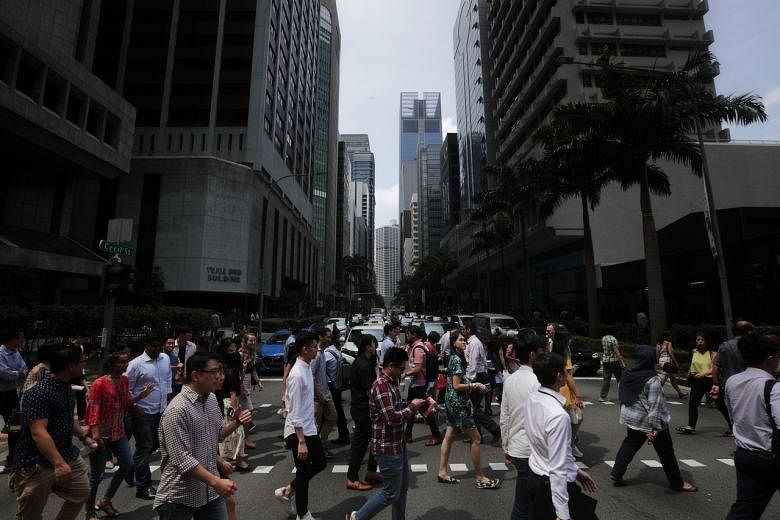SINGAPORE - Singapore businesses can still look for opportunities amid the uncertainties, and their responses will shape the extent of the impact of the Wuhan virus on the economy and labour market, said Manpower Minister Josephine Teo on Thursday (Jan 30).
"I don't think that it's possible to say that there'll be zero impact, that's very unlikely, but the impact can be moderated if we make the right moves, if we respond in rational ways... at the company level and at the individual level," she said at a media briefing on last year's employment situation.
Businesses may choose different ways of pursuing opportunities, said Mrs Teo. For example, they may moderate the number of deals that involve Chinese contacts but look elsewhere for opportunities at the same time. Instead of travelling to China to meet clients, they could use teleconferencing, or visit other clients elsewhere.
Some companies may take the chance to focus on training which they did not have capacity to do so at other times.
"The important thing is that people know that it will pass, this is interim, we try our best to weather this," said Mrs Teo, of the outbreak.
So far, company representatives she has spoken with have said that the number of workers affected by preventative measures is manageable.
The Ministry of Manpower on Tuesday started rejecting new work pass applications for workers from Hubei province. It said on Tuesday that it had rejected more than 30 such applications.
Workers in healthcare, education and eldercare institutions must also abide by a compulsory 14-day leave of absence if they have returned from mainland China in the past 14 days.
Mrs Teo said that the economic outlook for this year was already uncertain before the virus outbreak due to ongoing trade tensions and international conflicts, and with uncertainty being heightened, investment decisions are bound to be re-examined.
Singapore must also remain open and aim to be one of the top choices when companies evaluate competing locations.
It is also important to keep an eye on the medium- and long-term situation and keep the economic transformation going to prepare for the future.
The Government is monitoring the Wuhan virus situation very closely and has the resources to help, she said. On the manpower front, the priority is to mitigate the fallout and support affected workers to preserve their livelihoods, she said.
"The outlook has become more uncertain. The Wuhan virus situation, however, will not last forever. We have to address immediate concerns but keep an eye on the future, so for the longer term, we will help businesses to transform and workers to adapt."
Although comparisons have been drawn with the last major virus outbreak of severe acute respiratory syndrome (Sars) in 2003, which hit hotels and shops here badly, the situation today is significantly different, added Mrs Teo.
For one thing, much more is known about the Wuhan virus already compared with the same amount of time that has passed during the Sars outbreak, so contingency plans can be executed more quickly.
The economy is also more diverse now, she noted. Tourism and hospitality is a relatively modest contributor to the overall economy - about 4 per cent of Singapore's gross domestic product.
Within the tourism sector, sources of income have also diversified beyond recreational visitors to include meetings, incentives, conferences and exhibitions. Tourist source markets have also become more diversified over the years.
Nonetheless, Singapore must be prepared that "unknown unknowns" may pop up and be ready to respond to them when they do, said the minister.












